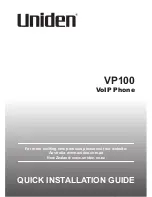
67
Consult the manufacturer of any personal medical devices, such as pacemakers and hearing
aids, to determine if they are adequately shielded from external RF signals.
Note
: Always turn off the phone in healthcare facilities and request permission before using the
phone near medical equipment.
Turning Off Your Phone Before Flying
Turn off your phone before boarding any aircraft. To prevent possible interference with aircraft
systems, the U.S. Federal Aviation Administration (FAA) regulations require you to have
permission from a crew member to use your phone while the plane is on the ground. To prevent
any risk of interference, FCC regulations prohibit using your phone while the plane is in the air.
Turning Off Your Phone in Dangerous Areas
To avoid interfering with blasting operations, turn your phone off when in a blasting area or in
other areas with signs indicating two-way radios should be turned off. Construction crews often
use remote-control RF devices to set off explosives.
Turn your phone off when you are in any area that has a potentially explosive atmosphere.
Although it is rare, your phone and accessories could generate sparks. Sparks can cause an
explosion or fire, resulting in bodily injury or even death. These areas are often, but not always,
clearly marked. They include:
•
Fueling areas such as gas stations.
•
Below deck on boats.
•
Fuel or chemical transfer or storage facilities.
•
Areas where the air contains chemicals or particles such as grain, dust, or metal powders.
•
Any other area where you would normally be advised to turn off your vehicle’s engine.
Note
: Never transport or store flammable gas, flammable liquids, or explosives in the
compartment of your vehicle that contains your phone or accessories.
Restricting Children’s Access to Your Phone
Your phone is not a toy. Do not allow children to play with it as they could hurt themselves and
others, damage the phone or make calls that increase your phone bill.
Using Your Phone With a Hearing Aid Device
A number of your phones have been tested for hearing aid device compatibility. When some
wireless phones are used with certain hearing devices (including hearing aids and cochlear
implants), users may detect a noise which can interfere with the effectiveness of the hearing
device.
Some hearing devices are more immune than others to this interference noise and phones also
vary in the amount of interference noise they may generate. ANSI standard C63.19 was
developed to provide a standardized means of measuring both wireless phone and hearing
devices to determine usability rating categories for both.
Ratings have been developed for mobile phones to assist hearing device users find phones that
may be compatible with their hearing device. Not all phones have been rated for compatibility
Summary of Contents for SCP-2700
Page 1: ...SCP2700 Operating Guide Draft ...
Page 8: ...7 Phone Basics Your Phone ...





































